Dialectical Behavior Therapy
Table of Contents
Dialectical behavior therapy (DBT) helps clients better deal with the difficulties of everyday life. DBT counselors sometimes give homework assignments for patients to reflect on between sessions. DBT is often associated with treating borderline personality disorder (BPD) and those with suicidal ideation. Because DBT is useful for a broader range of patients, including those with alcohol and substance use disorders, it is now a more widely used therapeutic approach. DBT is commonly used for patients suffering from severe depression and post-traumatic stress disorder (PTSD). In a dialectical behavior therapy program like the one offered at United Recovery Project’s detox center, counselors use psychotherapy programs to help teach patients how to accept their personal situations and learn therapeutic techniques that promote positive thinking and healthy behaviors.
United Recovery Project’s Luxury Detox Program In Florida
At United Recovery Project, our highly trained staff have extensive experience with drug addiction rehab, alcohol addiction rehab, and recovery. Our luxury detox facility offers a holistic approach to detox and recovery that caters to an individual’s needs. Our detox program includes:
- Case management from start to finish
- Including assistance with legal issues and job placement
- Group therapy based on experiences and personality traits
- Individualized one-on-one therapy
- Tempurpedic beds
- Catered meals
- Access to a licensed nutritionist
- Upscale leisure activities

How DBT Can Be A Guiding Force On The Path To Recovery
Dialectical Behavior Therapy (DBT) initially focuses on life-threatening behaviors. Counselors then help guide patients through behaviors that interfere with the therapy process.
DBT helps clients:
- Learn to combat intrusive thoughts
- Avoid negative thought patterns
- Avoid a tendency towards black and white thinking
- Regulate appropriate responses to conflict
Patients are encouraged to work on quality of life issues that interfere with:
- Work
- Professional development
- Finances
DBT aims to teach patients essential life skills that help improve:
- Self-esteem
- Relationships
- Emotional regulation
The Important Role Of Acceptance
These detox therapy services are called “dialectical” because they integrate opposites of change and acceptance. Skills at the foundation of DBT are acceptance-oriented. Patients learn to accept the present moment and pain when it emerges. Patients also learn how to navigate changing interpersonal and emotional patterns.
Over the course of DBT treatment, patients progress from:
- What feels like an impossible state of being
- Acceptance of their personal situation
- Accepting a mental health diagnoses
- Acceptance of substance abuse disorders
- Working on expanding your abilities to cope
- Embracing techniques that allow you to have productive and satisfying days
DBT has demonstrated success in harm reduction, suicide prevention, helping individuals complete rehab, and maintaining a life of sobriety. With the assistance of trained professional counselors, DBT can help patients manage their personal mental health challenges. These might include:
- Depression
- Accumulated anger and pain
- Feelings of embarrassment and shame
- Difficulty with social engagement
- Anti-social behavior
Choose United Recovery Project’s DBT Program For Safe Detox
There is a temptation to consider at-home detox an easy solution. However, medical detox has been clinically proven to be safer, more comfortable, and significantly more effective. It’s important to keep in mind the unpleasant and potentially dangerous withdrawal symptoms a person may experience during the detox process. Not only is it more comfortable, but it is safer to go through withdrawal under medical supervision. Withdrawal symptoms may include but are not limited to:
- Irritability
- Headaches
- Nausea
- Vomiting
- Diarrhea
- Anxiety
- Sleep issues
- Fatigue
- Tremors
Reach Out To United Recovery Project About Our Detox Program
Our staff is ready to assist you with any questions you might have about our drug detox program, as well as how Dialectical Behavior Therapy (DBT) can play a significant role in recovery. Contact us today to speak with a trained professional at 833.525.0166.
- Programs
- Women’s Detox Program
- Prescription Drug Detox Program
- Opioid Detox Program
- Opiate Detox Program
- Men’s Detox Program
- Meth Detox Program
- Medical Detox Program
- Holistic Detox Program
- Heroin Detox Program
- Drug Detox Program
- Relapse Prevention
- Psychotherapy Program
- Nutritional Education
- LGBTQ-Friendly Program
- Group Therapy
- Dialectical Behavior Therapy
- Cognitive-Behavioral Therapy
- Anger Management Therapy And Substance Abuse Detox
- 12 Step
- Detox Therapy Programs
- Alcohol Detox Program
- Cocaine Detox Program
- Benzo Detox Program
- Women’s Rehab Center
- Transitional Living Program
- Transitional Living Program
- Sober Living Homes
- Residential Rehab Programs
- Residential Addiction Rehab
- United Recovery Project | Drug Relapse Prevention
- Alcohol Detox Center
- Alcohol Detox Center
- Rehab Alumni Program
- Rehab Aftercare Program
- Rehab Aftercare Program
- Partial Hospitalization Program
- Outpatient Drug and Alcohol Rehab
- Medical Detox Center
- Intensive Outpatient Program (IOP)
- Holistic Drug Detox
- Heroin Detox Center
- Heroin Detox Center
- Dual Diagnosis Programs in New Jersey
- Drug Relapse Prevention in New Jersey
- Dual Diagnosis Programs in New York
- Drug Relapse Prevention in New York
- Dual Diagnosis Programs
- Drug Relapse Prevention
- Drug Relapse Prevention
- Rehab Alumni Program
- Alcohol and Drug Addiction Aftercare Programs
- Women’s Rehab Center
- Sober Living Homes
- Residential Rehab Programs
- Dual Diagnosis Programs
- Outpatient Drug and Alcohol Rehab
- Intensive Outpatient Program (IOP) For Addiction
- Partial Hospitalization Program (PHP)
- Residential Addiction Rehab
- Holistic Drug Detox
- Medical Detox Center
